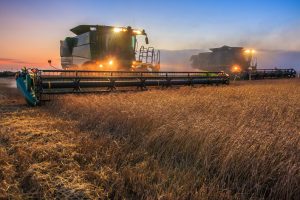
OKAgPolicy Today is a morning email containing the day’s top agriculture and policy headlines. The inclusion of a particular story does not equal an endorsement. Subscribe to the email here.
 Family farmers or liberal politicians? You choose
Family farmers or liberal politicians? You choose
Left-leaning politicians want to take away your guns, and now they want to take away your food. These liberal politicians and radical groups not only want to decide how farmers and ranchers produce food, but also want to tell you, the consumer, what to eat [OKAgPolicy].
TOP HEADLINES
Consumers should be skeptical of EPA’s pitch for Clean Power Plan:
“In effect, the CPP will require U.S. consumers, businesses and taxpayers to incur billions of dollars in higher costs each year for their electricity … in exchange for (carbon dioxide) reductions that will have no measurable impacts on world temperatures and climate.” [The Oklahoman].
Roberts, Stabenow reach deal on GMO labeling:
A landmark Senate agreement on national disclosure standards for genetically engineered foods would allow companies to disclose GMO ingredients through digital codes rather than on-package language or symbols [Agri-Pulse].
Senators reach deal on GMO labeling:
Senators have a bipartisan deal to require labeling of genetically modified ingredients nationally, a week before a labeling law in Vermont goes into effect [AP].
Agriculture will be affected by Britain’s ‘Brexit’ vote:
The main press focus this week is today’s vote on whether Britain should leave the EU. In fact, agriculture will be involved either way, Bloomberg says, since the vote could have a major impact on trade policies of the U.S. and Britain [DTN].
The new Panama Canal: A risky bet:
But when the speeches and the celebrations end, one inescapable fact will remain: The expanded canal’s future is cloudy at best, its safety, quality of construction and economic viability in doubt, an investigation by The New York Times has found [New York Times].
Bayer, Dupont join ag-tech investment boom to ease grain pain:
Dupont and Bayer AG have teamed up to invest in a new fund that will back agricultural technology startups, becoming the latest companies to pile into the multibillion-dollar industry as farm profits shrink [Reuters].
